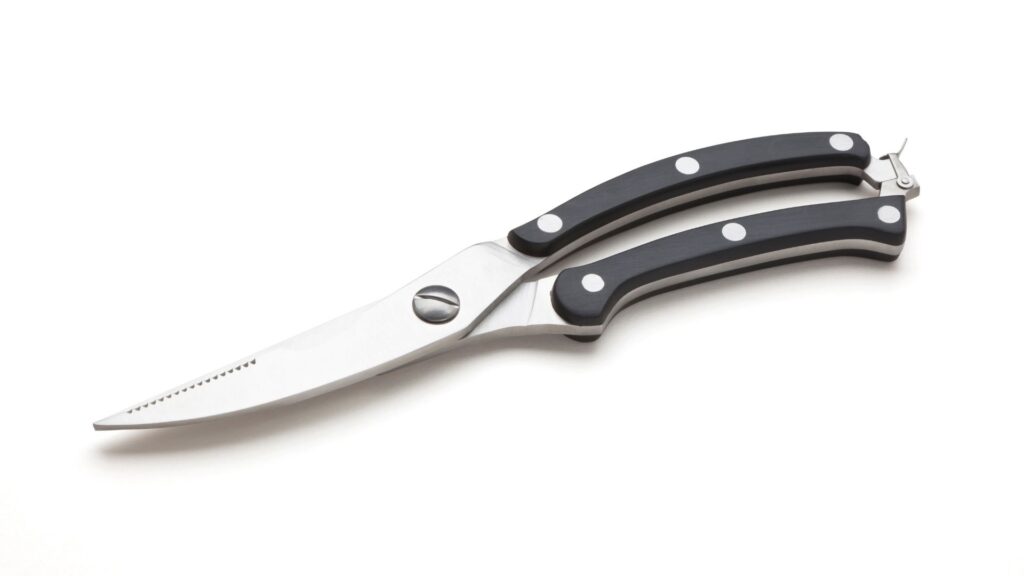Choosing The Perfect Knife To Clean And Cut Fish
Table of Contents
Toggle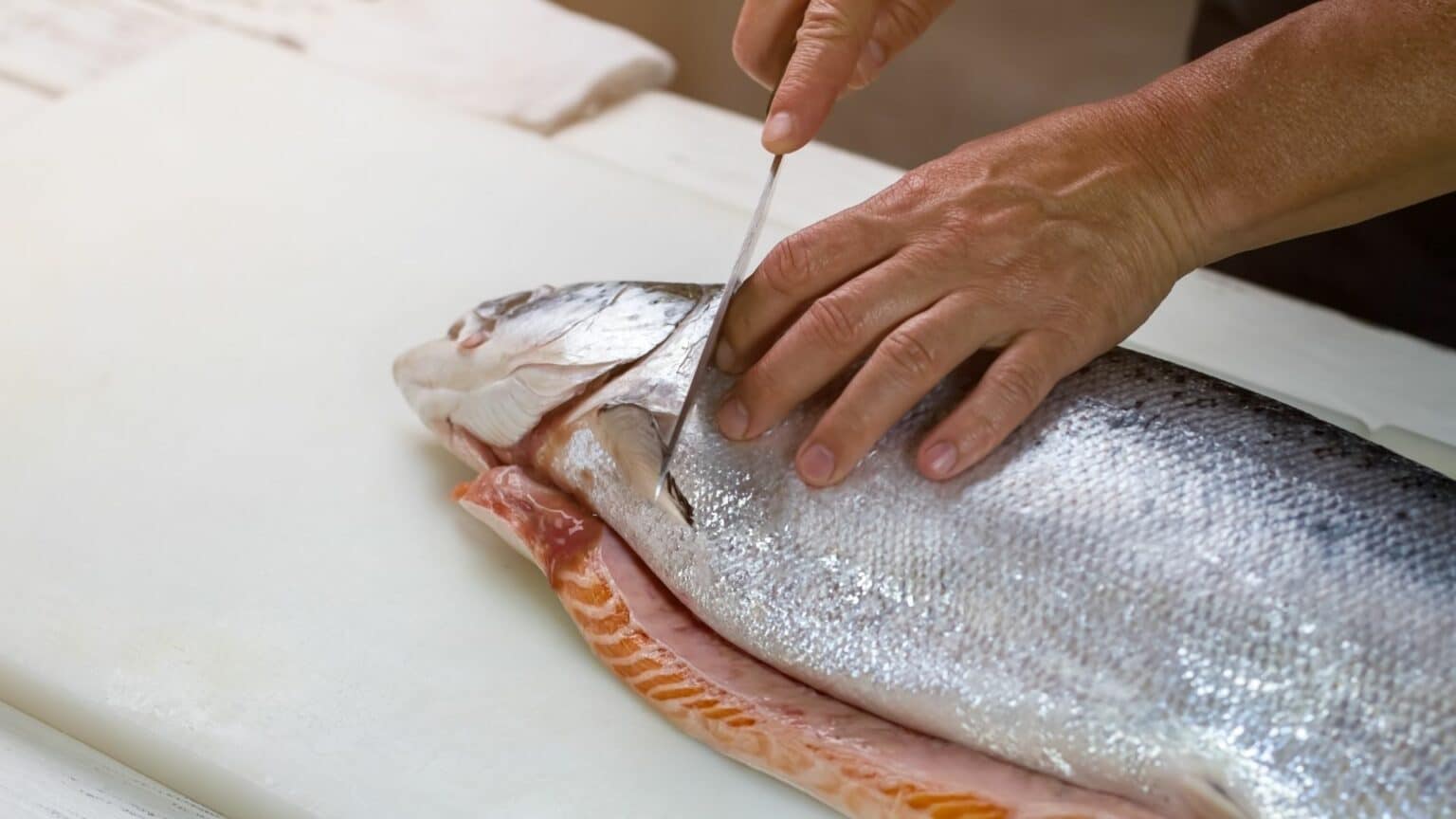
Last Updated: January 4, 2022
No matter how well trained a chef you are, there is always something that you can learn. That’s why it pays to be open to new things and take knowledge from other people. When it comes to cooking knives, there are different kinds of knives for various tasks. You can’t have just one knife for fish, you need different kinds for scaling, cutting, filleting, slicing, and serving. If you love fish but have trouble preparing it the way you want it, you need a fish knife. Yes, that’s right. A fish knife.
There are actually several different types of knives for different kinds of fish: a fish scaler for stripping scales, a curved boning knife or filleting knife for proper skinning, and an array of straight-edged cutlery to slice and dice various species in myriad ways (including a fish fork for serving). But which type of knife should you own, and, more importantly, what are the different kinds? This article will tell you all you need to know.
Fish knives are multifunctional cutlery, which allow to peel, fillet, and slice the fish fillets. As every professional cook knows, cutting fish requires special techniques and some good-quality sharp instruments. Therefore, it is essential for any chef to know characteristics of different types of fish knives and choose equipment that will make the work more efficient and less dangerous. Fish knives might look different from the knives you know, but they are not that difficult to understand. A fish knife is an integral part of a specialized table setting used to serve fish.
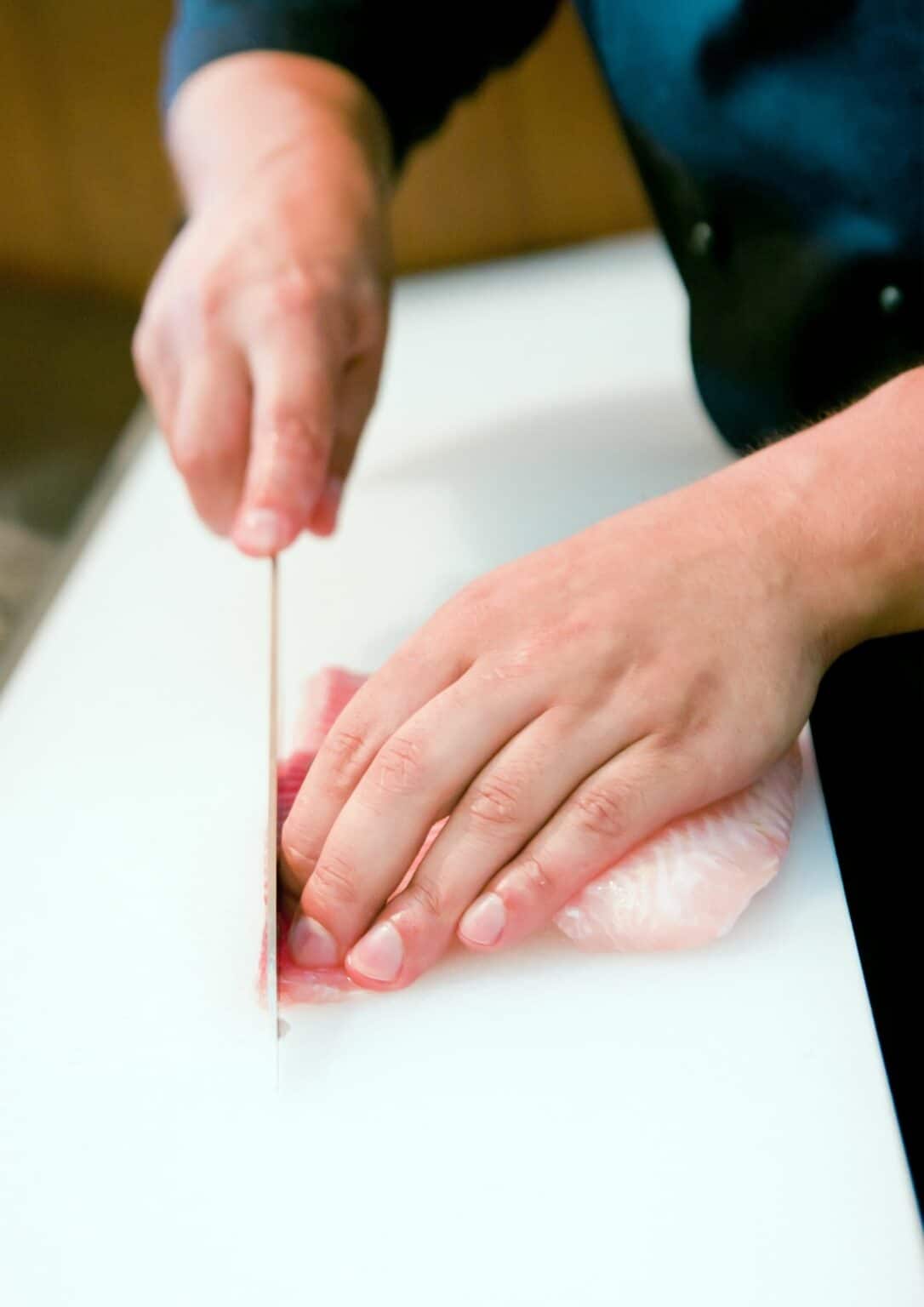
They are designed as a specialist and efficient utensil to filet, skin, and portion a variety of cooked fish. Although they may look like small chef’s knives, they differ in shape, thickness and length of the blade, overall dimensions, and principle of operation. There’s a tool for every job in the kitchen. Whether you’re using fresh or frozen fish, or salted, smoked – you need different tools for cutting. Another issue is that using a blunt knife could damage the quality of your fish, especially if the chopping process is rough or rushed.
This hypothetical scenario shows that even a simple task can get complicated very easily without the right tools. Fish are generally classified in two types based on the texture of their skin: scaled and smooth skin. There are several differences between these two fish and the tools used to scale and de-skin them, as well as how to remove the head, tail and fins. Fish are animals that breathe and live in the water.
The skin of a fish is covered with scales, or small, hard plate-like structures that are coated with a protective layer of protein like substance. In some species, there is no protective cover over fish skin on certain body parts including fins, ventral and dorsal areas. There are different types of fish knives used for different purposes. Fish carcasses with smooth skins usually need one kind of tool to dissect them while carcasses with scales may require a totally different knife.
Fish knives are multifunctional utensils. They are used for cutting, scraping and cleaning. If you have never used such an object before, you should read this article to learn how to use fish knives properly. You will find out about the old-fashioned and modern variants of fish knives, choose the best one, and discover all the secrets of using these instruments.
Fish Scaler
Buying fish at the supermarket is easy. You just pick out your desired fish, pay by the pound and head home to prepare a delicious meal. However, if you prefer catching live or frozen uncut fish, you know how important knives for scaling fish can be. They can save you time and effort when cleaning fish. Fishing enthusiasts who freeze their fish or just buy them fresh are familiar with the task of scaling such fish. Fish scaler knives are mainly used for scaling fish, which involves the removal of scales from a live or frozen fish by scraping them with a knife.
Scaler (scraper) is a special knife with a toothed metal blade, which removes scales from fish skins. Fish scaler allows you to easily remove the scales from the skin. It has two versions, one with a double-blade and one with a single blade. Fish scaler with double-blade is easier to use, it looks like a regular kitchen knife, having a blade of the order of 0.3 inches wide, providing results in the same way that scraper knife does. The knife with a single blade is designed for cutting scales from the skin at the same time. This is a very useful thing for people who love fresh fish.
In general, the skinners are used with caution, because they have a risk to cause damage to the meat body. All fish clean up devices operate in principle, but in practice each has its own characteristics. It is important to pay attention to this imperative detail! One of the most important things to consider when choosing a knife or “scaler” is the size of scales you will be processing.
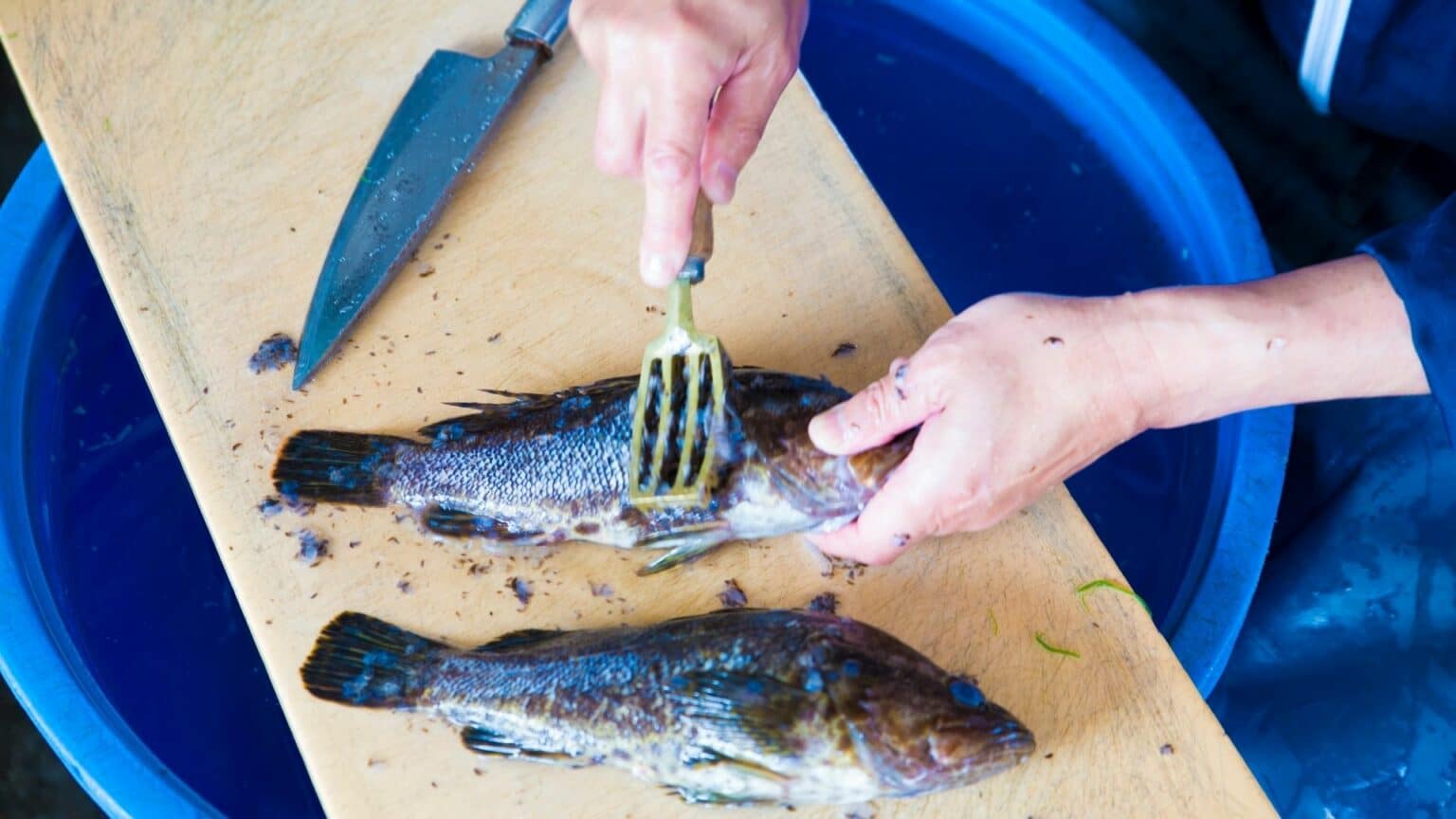
The teeth on the edge of the blade need to be in good proportion to the size of fish you will be scaling. If they are too small, you will hit problems scaling fish. Small fish require deft work, and such small blades with no flexibility will make it difficult to maintain precision throughout the process. On other hand, large teeth are inefficient for use on small-scale fish. Large teeth are ideal for carcasses with larger scales that take more effort necessary for cutting. This can ruin tenderness in fillets if not handled correctly.
The best fish scaler should be easy to use, have extremely sharp blades and ideally include a few different blades so that you can choose which one will work best for each type of fish. The tool is used to clean the smelt before freezing them. It is also used to clean other marine products, as well as shrimps. Several toothed blades speed up the process – one removes scales and the other cleans up.
But they will not cope with large, high scales; it is more convenient to work with single-row high teeth that lift and cut the scales. It is not acceptable to let scales fly all over the kitchen, that’s why they invented a fish peeler with a container that collects all the waste products. After work, it is enough to shake out the contents in the trash can. Modern life has taken tolls on our well-being, and this often applies to even the simplest endeavors. You could hardly imagine such an effective tool in the kitchen of your grandmother’s time!
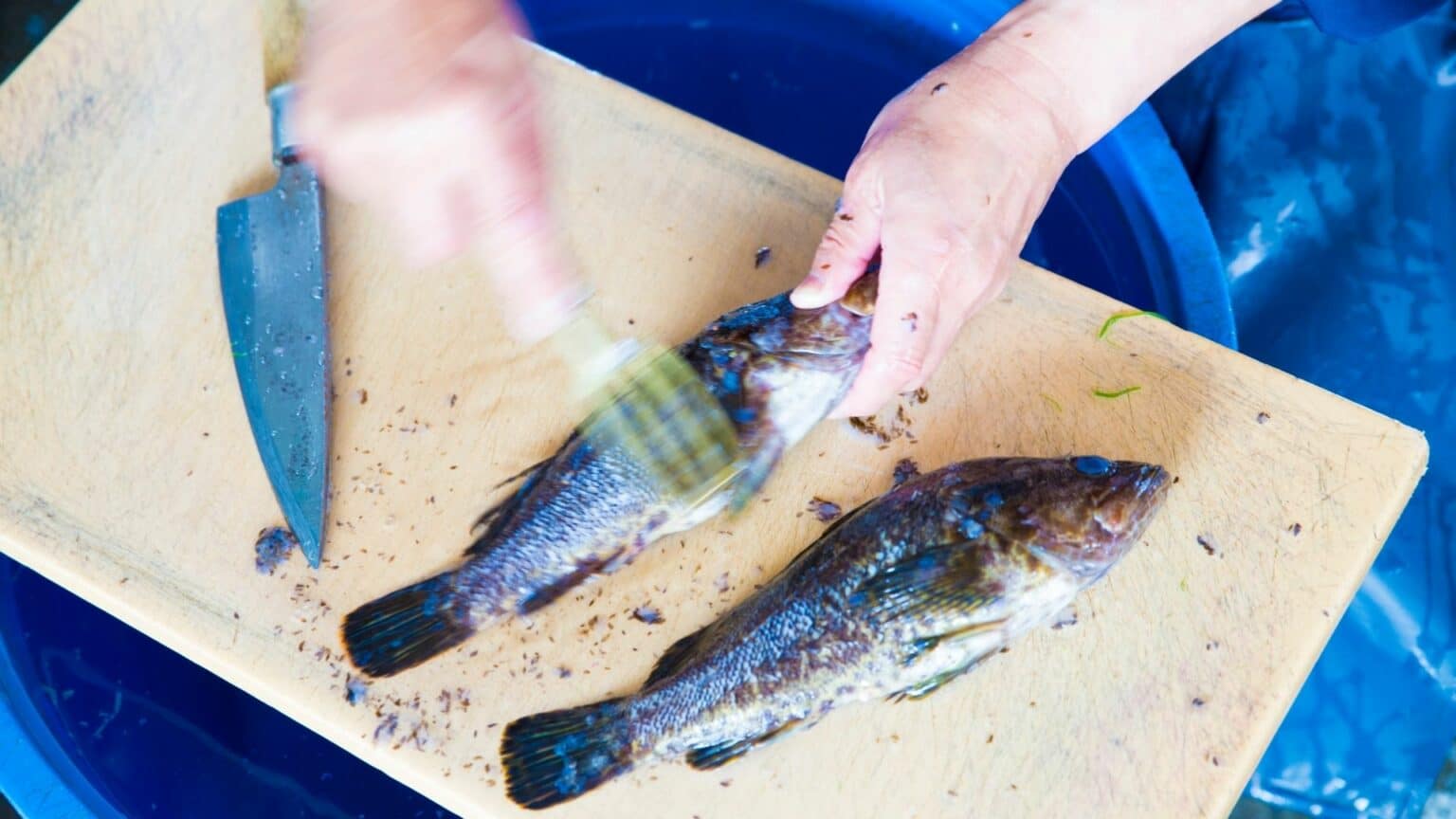
Selection Control Points :
- Sharpest teeth
- Comfortable and non-slip handle
- Rugged stainless steel
It’s a frustrating experience when fish scalers fail to do their job and leave scales behind, but it can be even more annoying when they last for only a couple months. When buying fish scalers, you have 2 choices. The first option are those with a plastic body. They are cheaper, but less durable and fail very quickly due to the pressure that is exerted on them when cleaning large fish. The second option are metal fish cleaners with a wooden handle.
They cost a little more money than the plastic versions but they are far superior and made to withstand the harsh treatment of day-to-day usage. Those with a stainless steel body cost more up front but last longer. The choice between these two types is often a matter of budget. Longevity also depends on the quality of steel used for the blades. It is important that a metal alloy is used that is resistant to corrosion and rust.
Knives For Cutting Fish
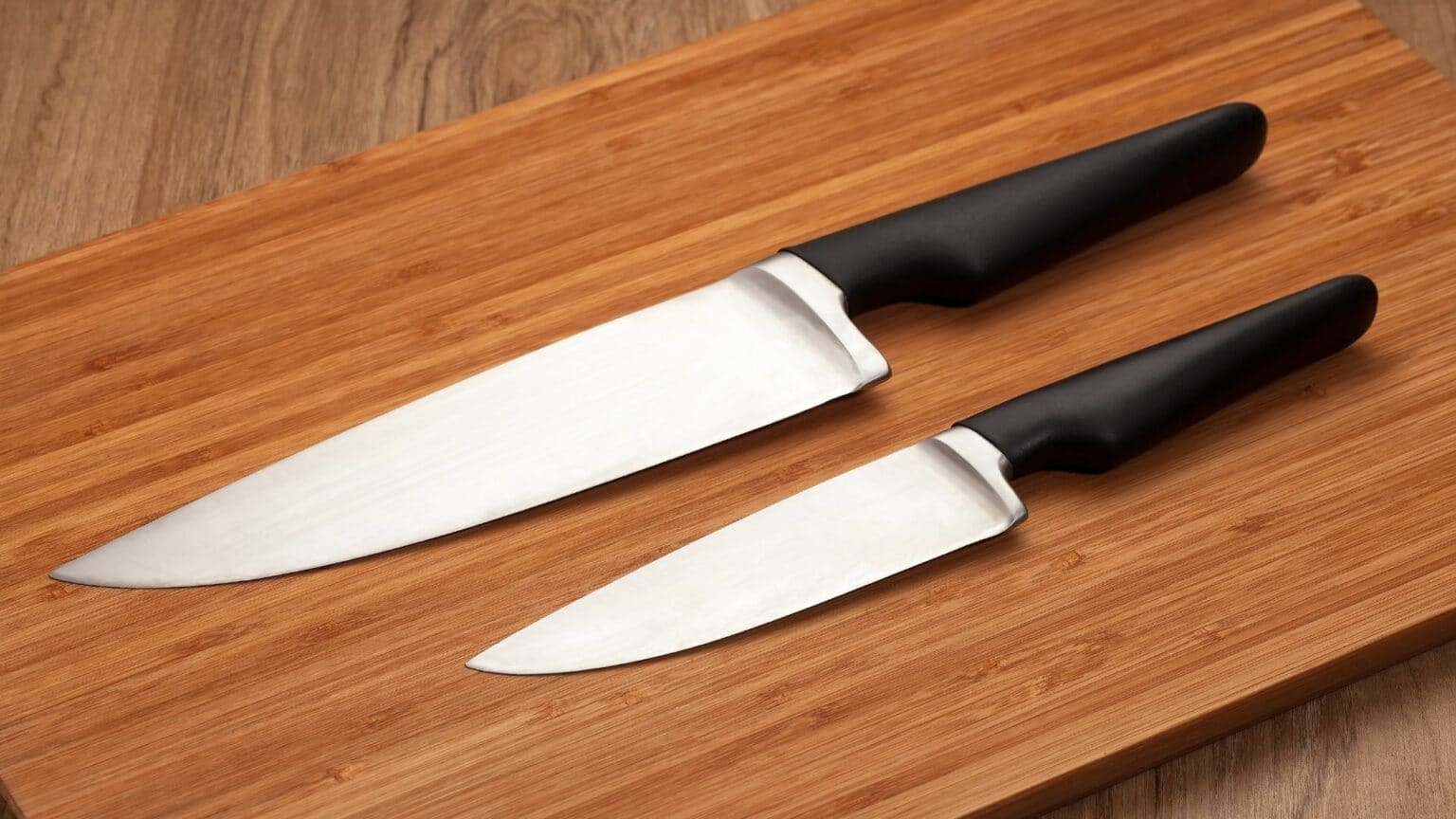
Whether you like to fry, grill, or bake your fish, a good knife is an important tool in the kitchen. Next to the chef’s knife, a fish knife is probably one of the most needed pieces of utensils or cookware in a commercial kitchen. It is hard to imagine how cookery would go if you do not have this knife at hand.
It is a basic component of any kitchen’s contents and is most especially important in seafood restaurants. A carving knife is used to cut off the head and tail of the fish, remove the entrails and divide into portions. If you are thinking that any kitchen knife can do everything, you need to learn what fish knives are.
The fact is, they have some unique traits a regular regular knife doesn’t have. They can’t replace any other kitchen utensils but they are great for preparing fish and seafood. There is a lot to consider when shopping for a knife. The model, materials, and size are some of the most important details to pay attention to.
- Body is made entirely of stainless steel, making it easy to clean and odorless
- Base of the blade is wide and allows you to cut the head and tail in one go
- With a stop that prevents the index finger from slipping
- Long and straight blade, also very strong
- Sharpened tip for a perfect cut
In some cases, teeth are added to the non-working side of the blade, turning it into a fish peeler. Coarse scales usually cannot be handled, but small scales or skin can be scraped off.
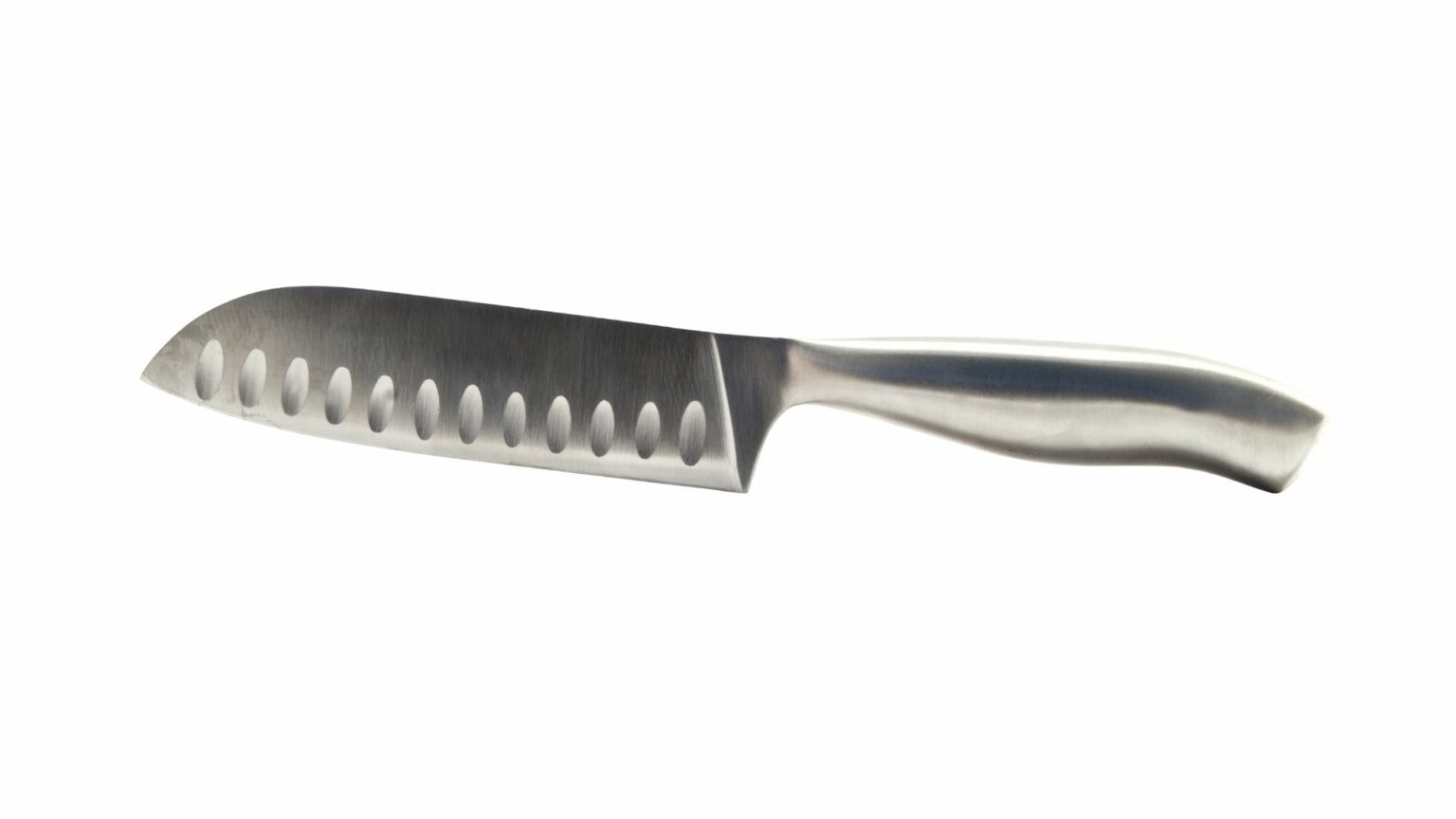
Fish slicer knives have an elongated, wavy blade with a pointed end. Fish slicers are used to cut thin slices of fish that melt in the mouth. The blades on a fish slicer are longer than the blades on traditional chef’s knives. Longer blades give you more cutting edge for less material to slice.
The elongated design of the blade gives you more room to handle the fish in order to make it easier to slice the fish from end-to-end so that you get a long piece of cleanly sliced sushi or sashimi with fewer incisions. A relief is a small scalloped indentation in the side of a fish knife. The reliefs that are present on fish knives serve two main purposes.
They prevent the tender flesh of a fish from sticking to the blade and they contribute to a neater and smoother cut. Coarse texture would also be easier to cut with this type of knife which means that even tough cuts of meat can be handled easily by professionals.
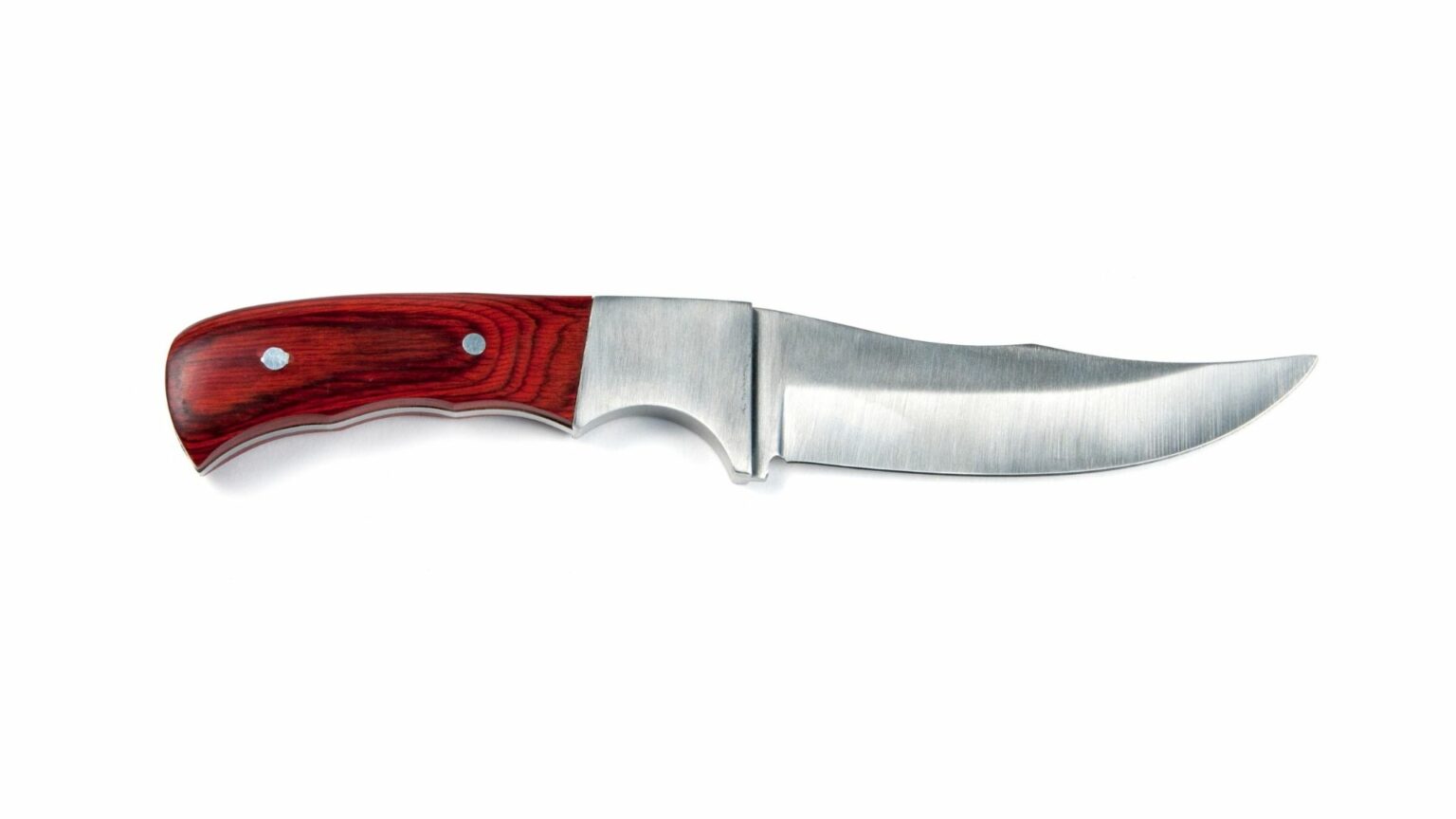
But what knife is best to use for gutting fish? The fish gutting knife is a single-edged tool with a rounded crescent-shaped blade. This one-piece construction consists of the handle and the blade that are fixed to each other by means of rivets, screws or nails.
It proceeds from southern regions to all European boards, as well as Canada and USA. The fish gutting knife has a flat blade that allows to cut open the breast and remove the internal organs. The uniquely shaped blade removes all the inner organs of the fish in one pass. Gutting fish is not only an art but also a skill to learn.
You may be surprised to find out that “gutting a fish” is not as easy as it sounds and you can get injured if you don’t know what you are doing. It’s advised to learn from someone who knows how to gut a fish properly or follow proven methods on how to gutting fish like a pro.
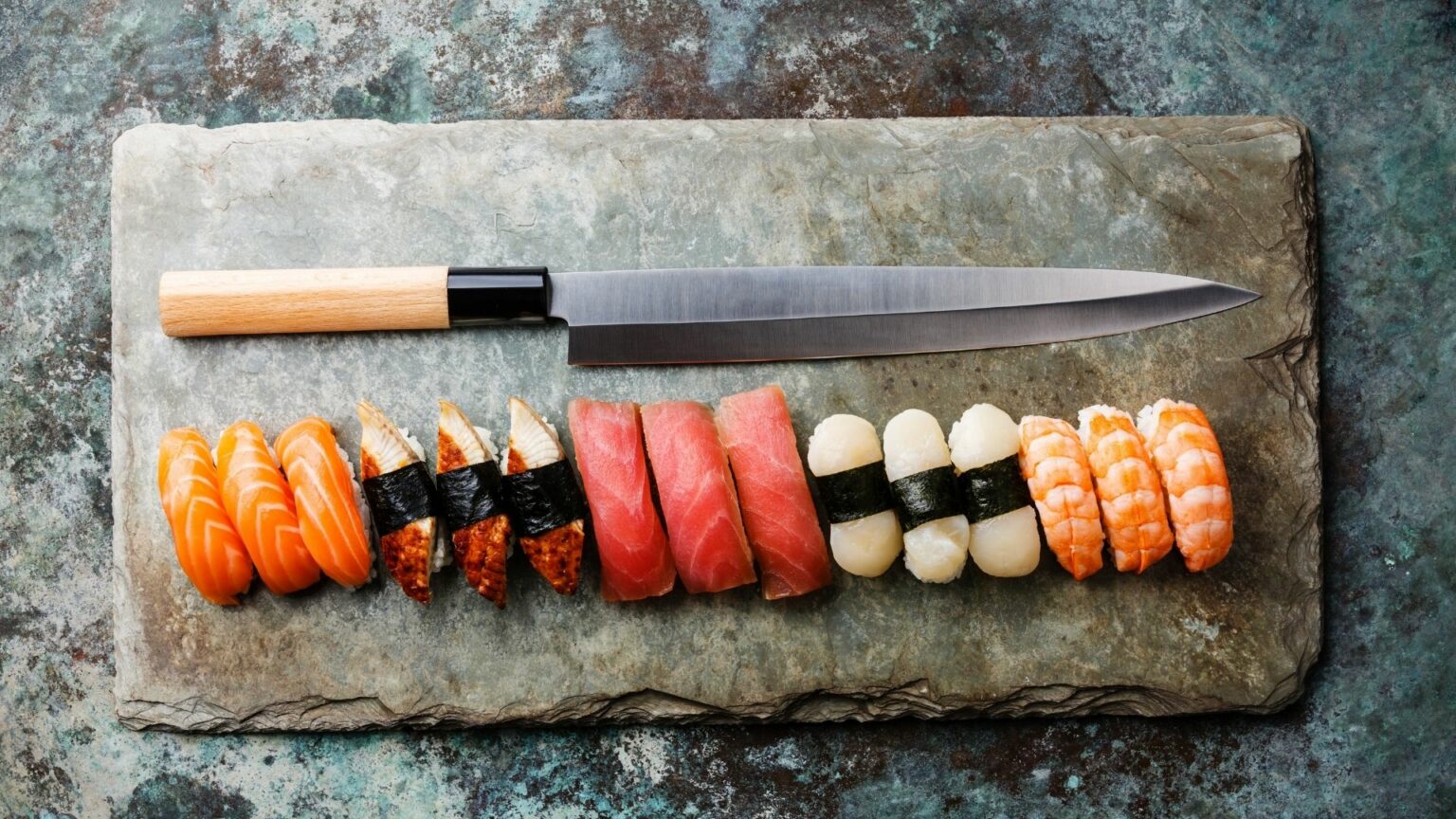
Traditionally, a Japanese knife with a blade in the shape of a willow leaf is used for slicing raw fish. It may be used for cutting sashimi, sushi, and other types of seafood, but it is not intended for cutting cooked foods. The knife has two sharp edges and is 12 to 15 cm long.
The fish knife has traditionally been seen as one of the essential tools for the preparation of sushi. Japanese knives are famous for their sharpness. Most of them are handmade and have a special sharpening called “kire”. Kire is a complex procedure that will allow you to achieve the maximum sharpness of your knife, while keeping it razor-sharp and with a long cutting edge.
The cuts are smooth and clean, so you don’t change your hand and board position when cutting sushi rolls. The extra sharpness gives sushi chefs more control over the knife and the ability to quickly butcher tenderloin and tuna perfectly at 20-25 degree angle.
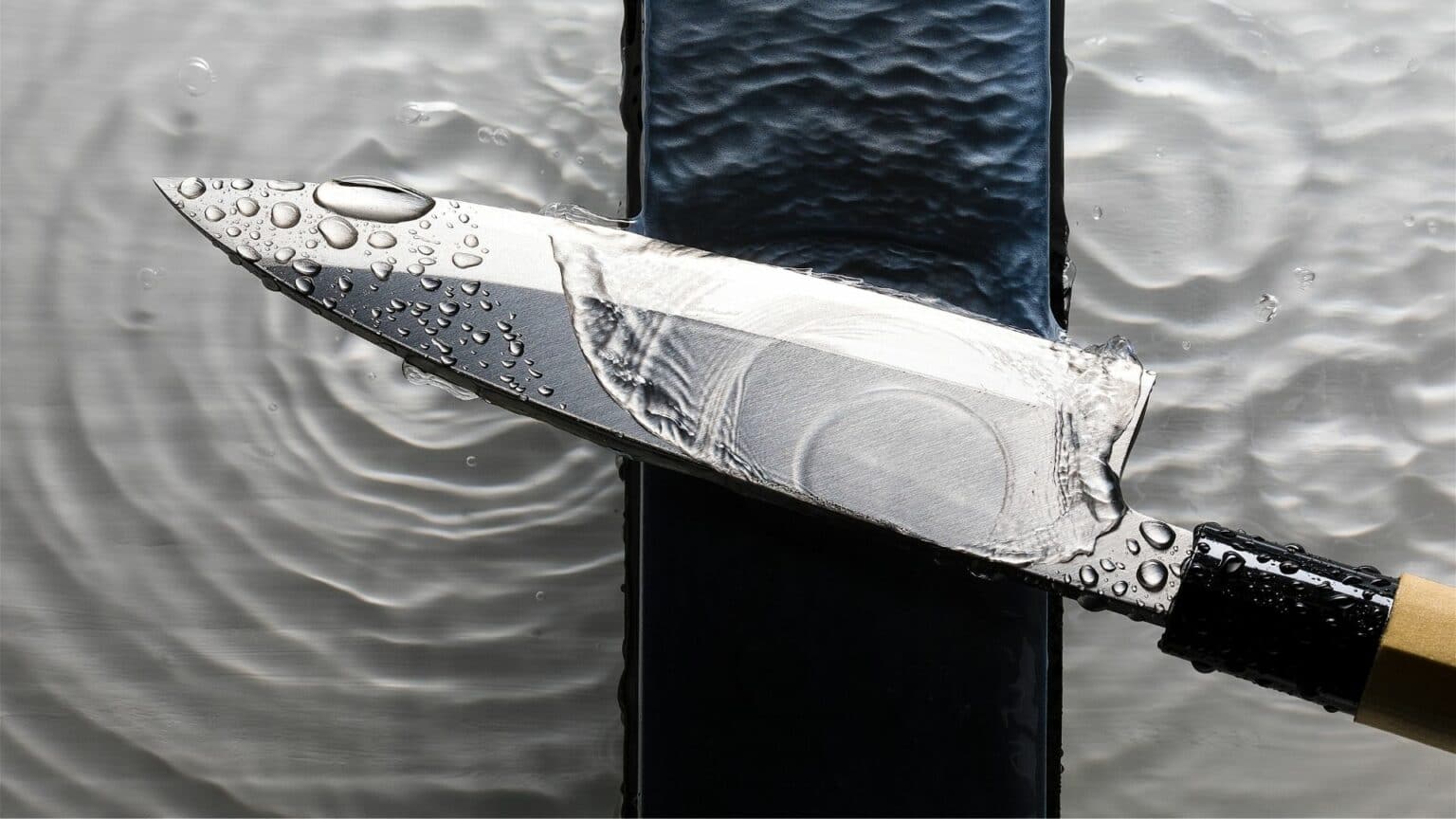
Mini versions of vegetable cutters are specifically designed for small garlic clove, bit of ginger, cube of chocolate, for example, to sprinkle over coffee. Perfect for garnishing cups of coffee and other hot drinks or baked goods etc. They are the essential kitchen tool for cooks who love freshness in their food and are keen on adding a decorative note to any dish. These handy devices come in one or more working surfaces. For example, two or four, with different teeth on each side.
If you do not want to buy a separate fishing knife, it is better to get universal Japanese santoku. It will cope with even large fish. This knife has a blade that is about 5 inches long and has a straight edge with a sharp angle.
The Japanese know the most about knives since their culture revolved around their use and their creation over 1000 years ago. A good tool for separating the head and tail would be a kitchen axe.
Thin Slicing
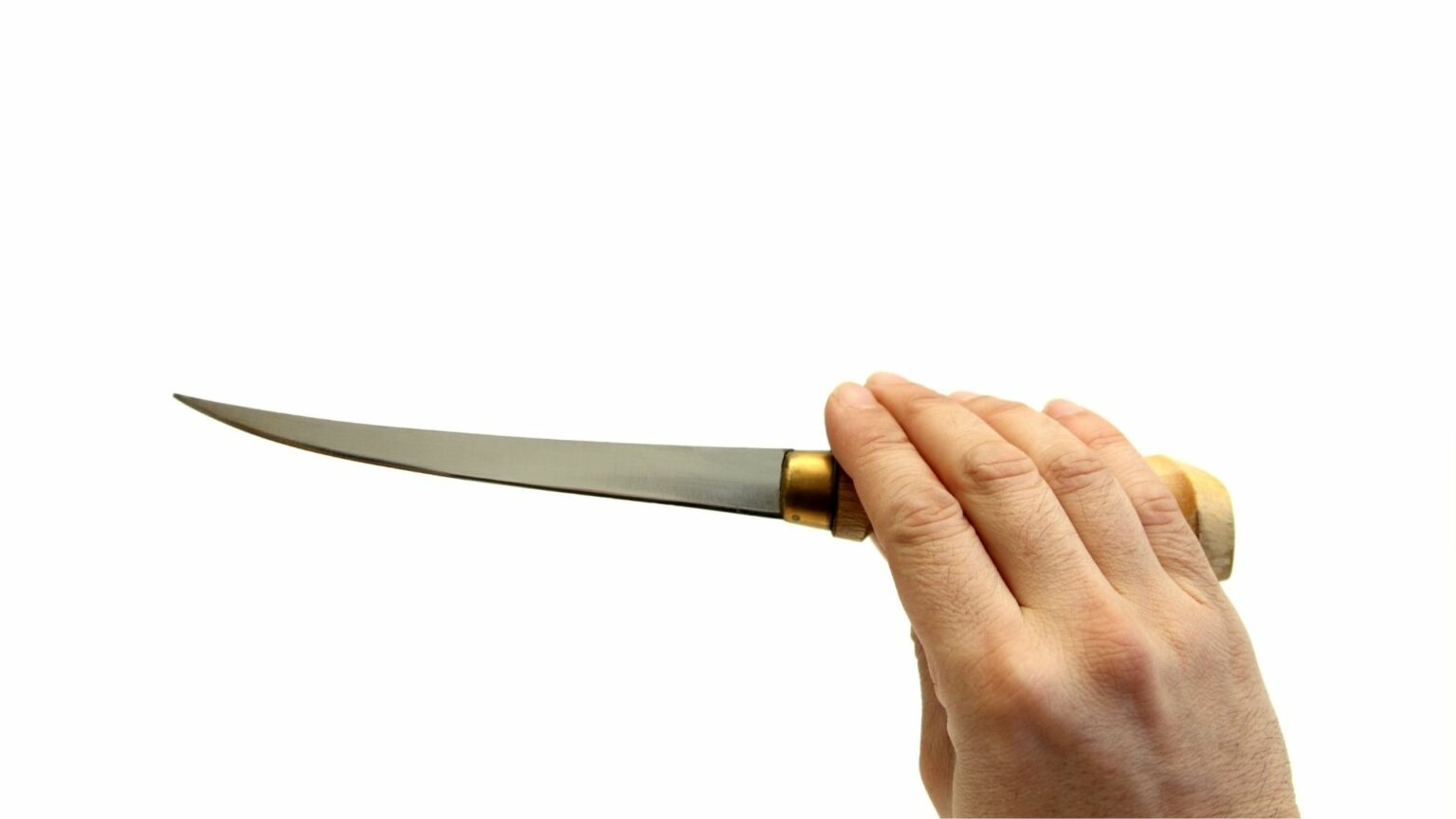
Fish is a popular choice for many people around the world. Whether it’s for a special occasion, or a quick and healthy meal, fish is certainly worth considering. And let’s face it…freshly caught fish just tastes better. But what if you don’t know how to fillet or slice fish? You’d be surprised to know that a different knife is necessary in the case of filleting.
Fish, unlike other delicious meat is full of bones and thus, a lot of effort and skill is required to cut one without losing much meat. This is where filleting knives win. The shape of the blade varies depending upon their purpose, but they all have a long slender blade that is needed in order to reach along the spine of the fish or meat and the careful separation of the flesh from the bones or cartilage.
A skilled chef can use this kind of knife to separate fish meat from bones in seconds. Blade sharpening angle is an important factor in the process of sharpening filleting knives. In addition, blade sharpening angle has an effect on the degree of relief and durability of the blade. The blade sharpening angle is minimal. The edge bevel (sharpened part of a blade) only extends 0.5mm to 0.7mm.
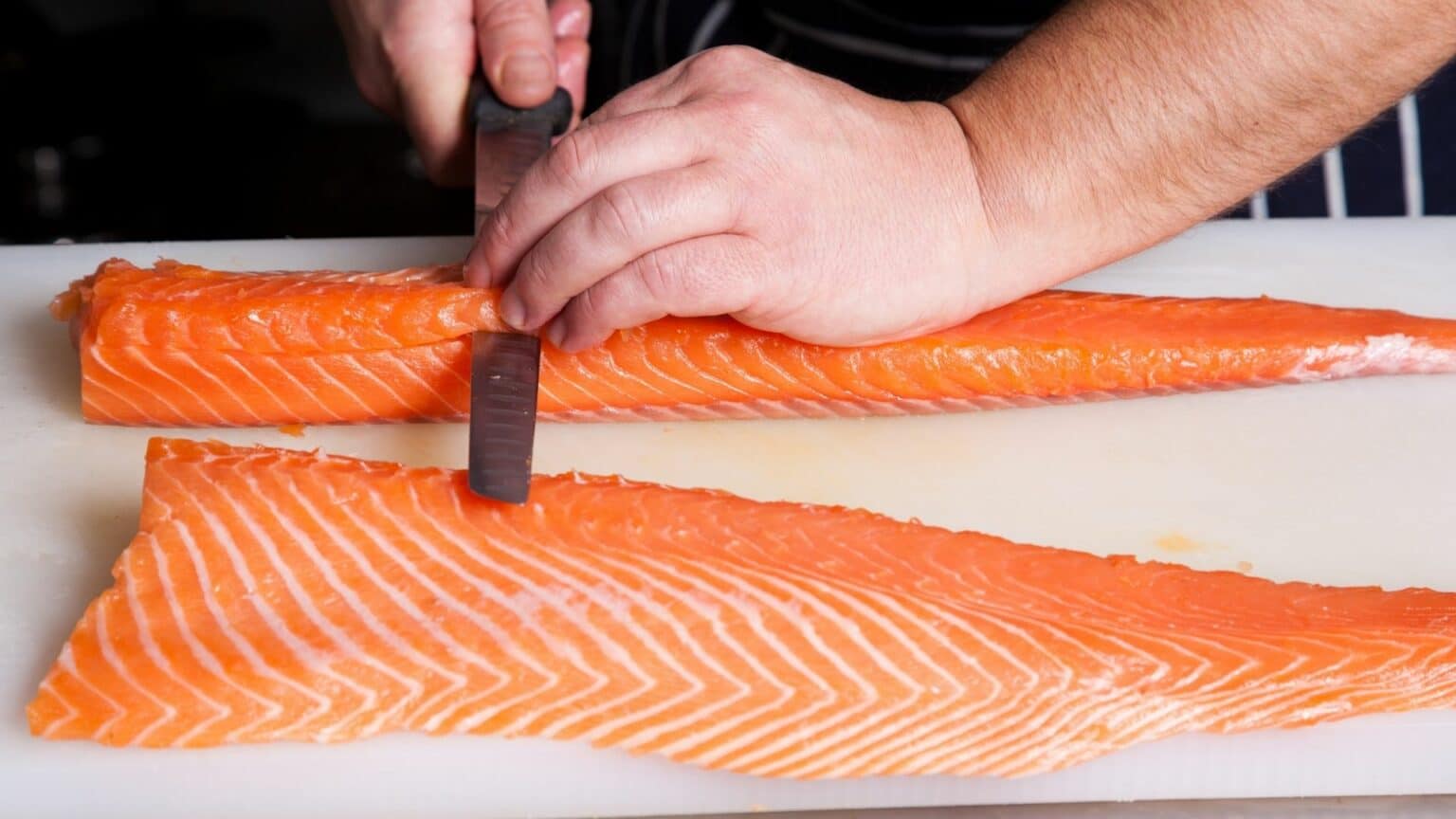
This is an extremely minimal edge bevel. These knives are very flexible and have long narrow blades of up to 15 inches long. Blade shape varies from a flexible to straight rigid edge. The thickness of the blade is sufficient to allow the proper amount of strength for removing meat from bones and cutting through skin, yet thin enough to allow marinade to penetrate and flavor the meat.
Often there are notches on the blade – these “pockets” reduce the sticking area and allow you to get a smooth and even cut. It is extremely important that knives have ergonomic handles. During manual filleting, a knife must be held in the hand for a long time, so it is necessary to take into account not only juicy material, but also comfort when choosing a model of fillet knives.
An expert filleting knife should have an overhang at the point where the handle transitions to the blade. The overhang provides control, safety, and stability of the tool. Fish filleting knives are used for cutting fish fillets. They are widely used in restaurants and cooking industries worldwide, as they make the filleting process quicker and simpler. The steel used in these filleting knives is either stainless steel or carbon steel.
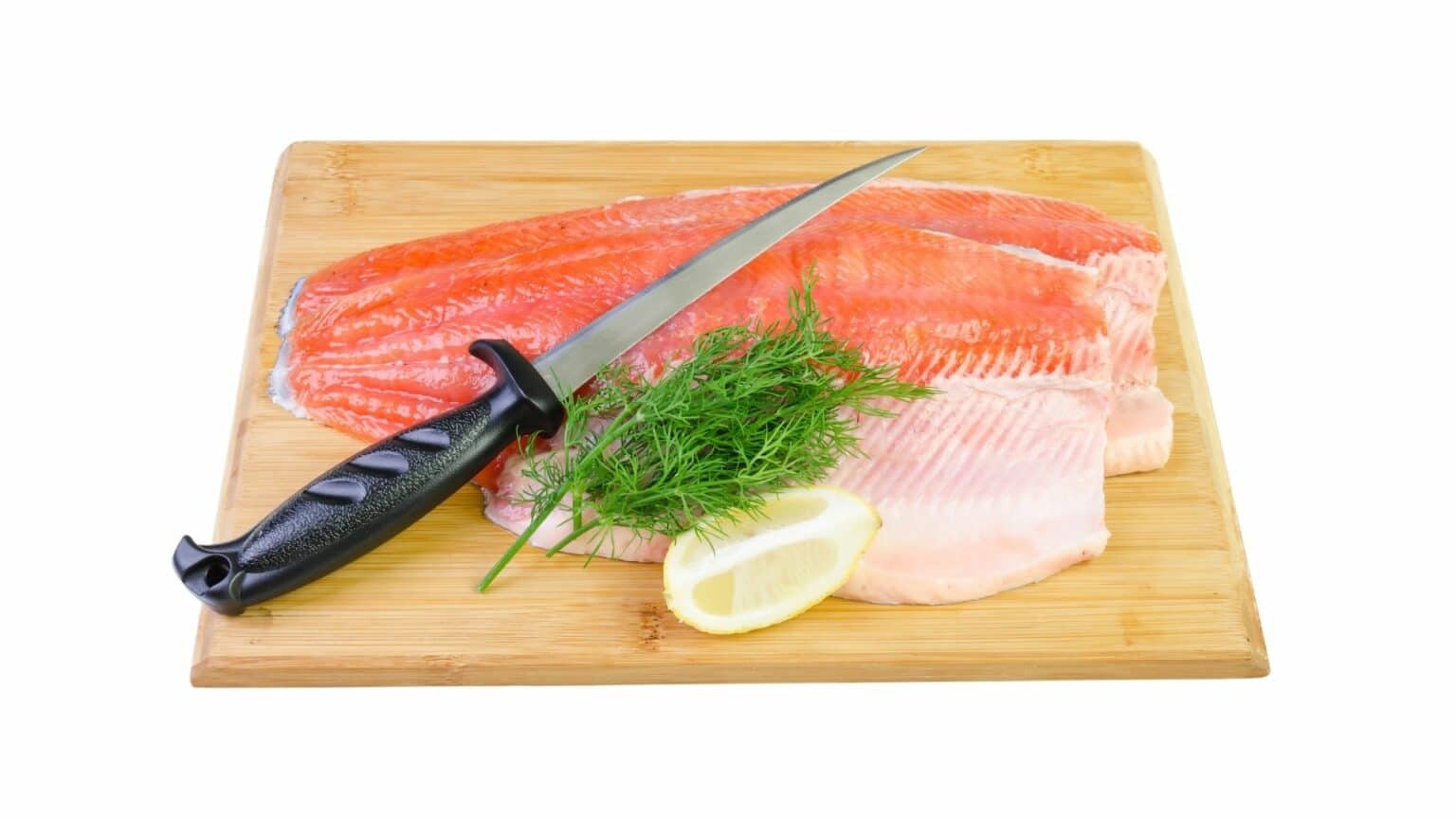
The stainless version is stronger than the carbon steel, but it is also more expensive. After a filleting, You will be left with just bones and head. So the last thing you want is a cheap knife, instead select long lasting material high carbon stainless steel knives which will ensure a long period of hacksaw blade and fillet knife blades.
Fish filleting is a procedure that enables you to take a whole fish and separate it into different parts using a knife. Apart from your knife, hygiene is very important when handling fish for filleting. You’ll need a pair of tweezers to get rid of tiny bones in the flesh of fish.
Small bones in the center of the fish can be especially challenging, as they can break off during filleting and ruin the taste of your dish. Using special tweezers to remove these small bones can help you finish the technique more successfully. These are long, thin tweezers that are longer than normal tweezers, allowing you to more easily grasp those tiny bones.
Electric Fish Knives
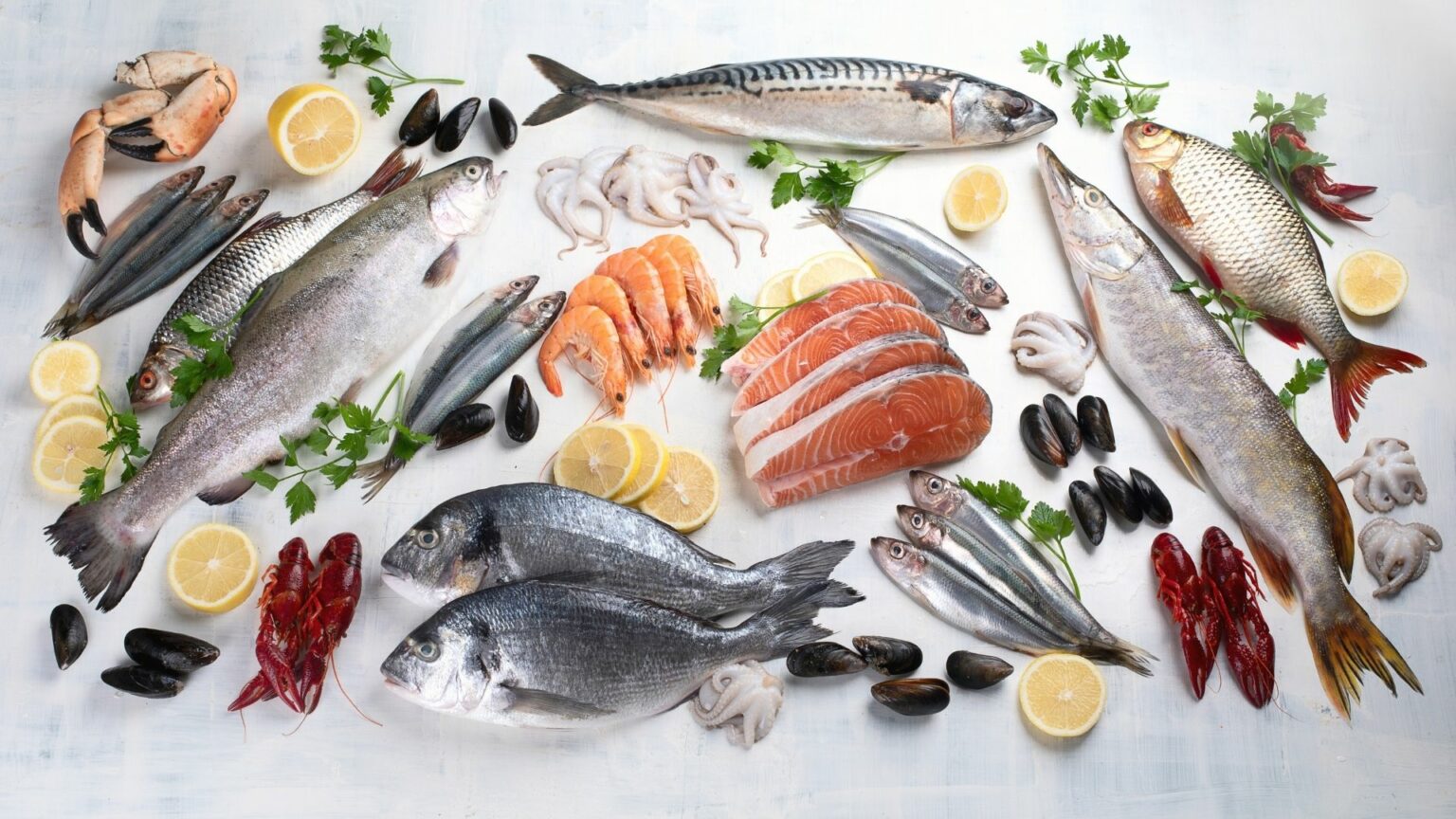
If you love fish, but hate cleaning it, then it is time to switch to electric fish knives. The dishwasher has already simplified many kitchen tasks and now electric fish knives can do so too. The electric knife is an innovative device that is saving a lot of time, effort and even money. It is no longer necessary to spend time trying your best to scale a fish quickly. An electric knife will cut the job almost effortlessly, allowing you to complete it in no time at all and move on to more important tasks.
A good knife can peel a fish faster than a bad one. And an electric fish-peeling knife removes scales effortlessly, regardless of the consistency and hardness of the scales. Most avid cooks know that fish is one of the most difficult whole foods to prepare in the kitchen. From filleting and scaling, to de-boning, fish preparation requires a host of specialized utensils and methods.
Traditional knives are often too dull or small to effectively slice through the skin of a piece of white fish. And if the knife is sharp enough, it will slip out of your hand when trying to cut away exposed viscera in thick, red fish like tuna or salmon. The electric knife is the go-to tool for both cooking aficionados and professional chefs who need effective tools that are easy and safe to use. There are two types of electric fish knives.
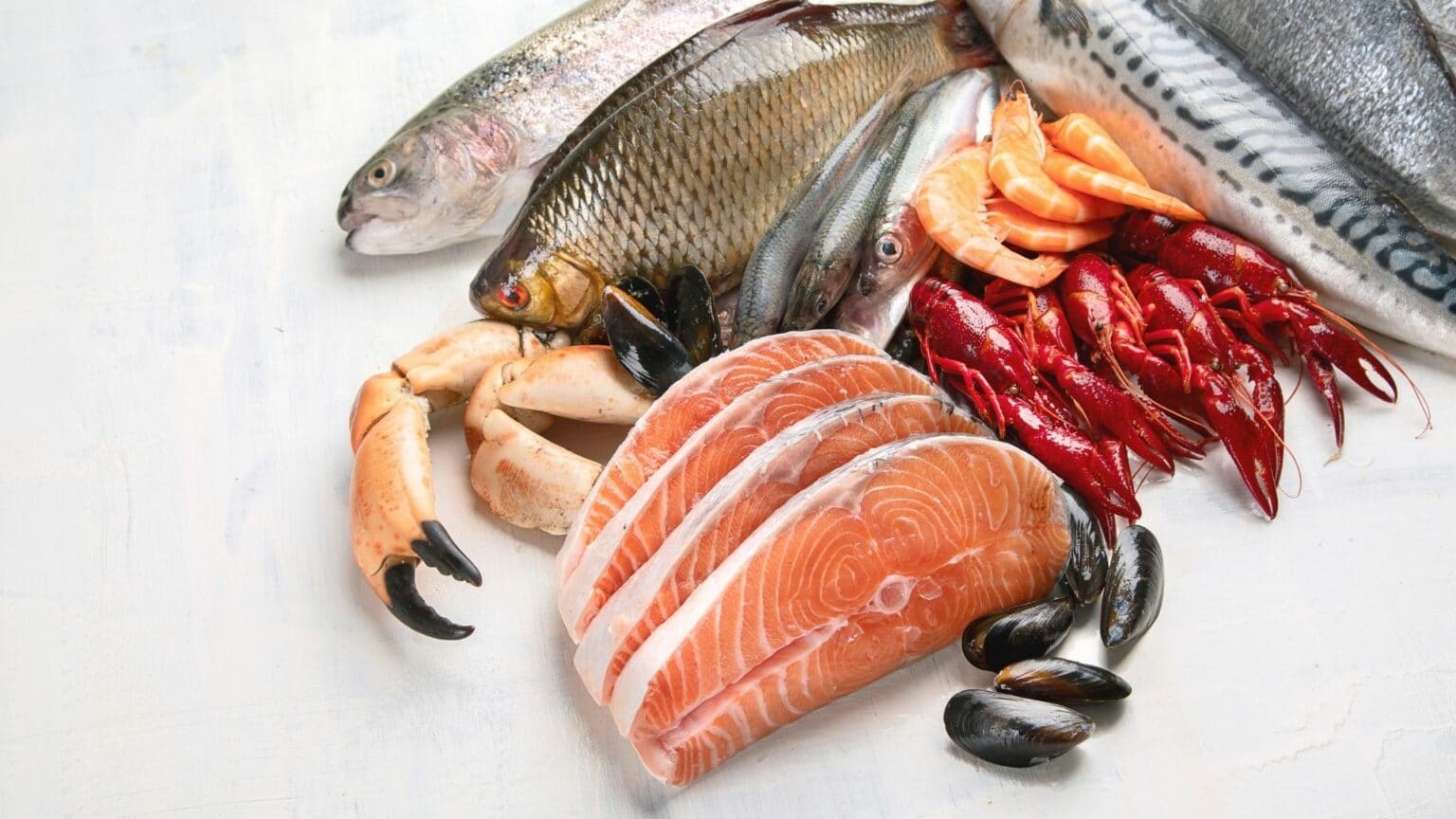
One kind is electrically powered while the other kind is battery-powered, requiring no outside energy source. The first kind of electric fish knife can be mains-powered. Usually, it is plugged into the wall and ready to go. In addition, there are car cigarette lighter models that can be used even in camping conditions. The battery-powered ones come in handy when situations require a more portable appliance.
When handling fish, the smell left behind on your hands may be unpleasant. However, you can effectively prevent this unpleasant odor with the help of electric fish knives. For home use it is better to buy an electric knife with a cover that will prevent the scales from flying around the kitchen when pressing on them with the knife. Similar to the traditional fish knives, these tools also have their differences in design and features.
Electric sirloin knives are very useful in the kitchen, since they make it possible to maneuver the piece of fish much easier and cut neat slices more accurately. The knives in question quickly separate fillets and can also be used for cutting fish. Many people begin cooking fish with difficulty because of their lack of skills. They always heard it is not easy to take the fish from the bone.

But it does not mean that you cannot learn how to do this. Even though you don’t know how to deal with the fish carcass, you need some electric knives. The extra power allows you to cut through bones with ease. Electric knives have been around for quite a while, but their popularity has not diminished throughout the years.
Actually, with the advancement of technology, new electric knives are improving the way we eat so much that this simple utensil became a kitchen standard. It may seem like an exaggeration, but it’s true. There are plenty of electric knife models on the market currently, but when choosing one you should give preference to models that can handle frozen fish.
When choosing an electric fish knife, it is necessary to take into account all aspects of the device’s design. For example, frozen fish can often be quite hard, so models with fragile blades will not be suitable for this type of food. When choosing electric knives for fish, you need to make sure that they can handle frozen fish and are not just limited to fresh cuts.
Serving Fish Knives
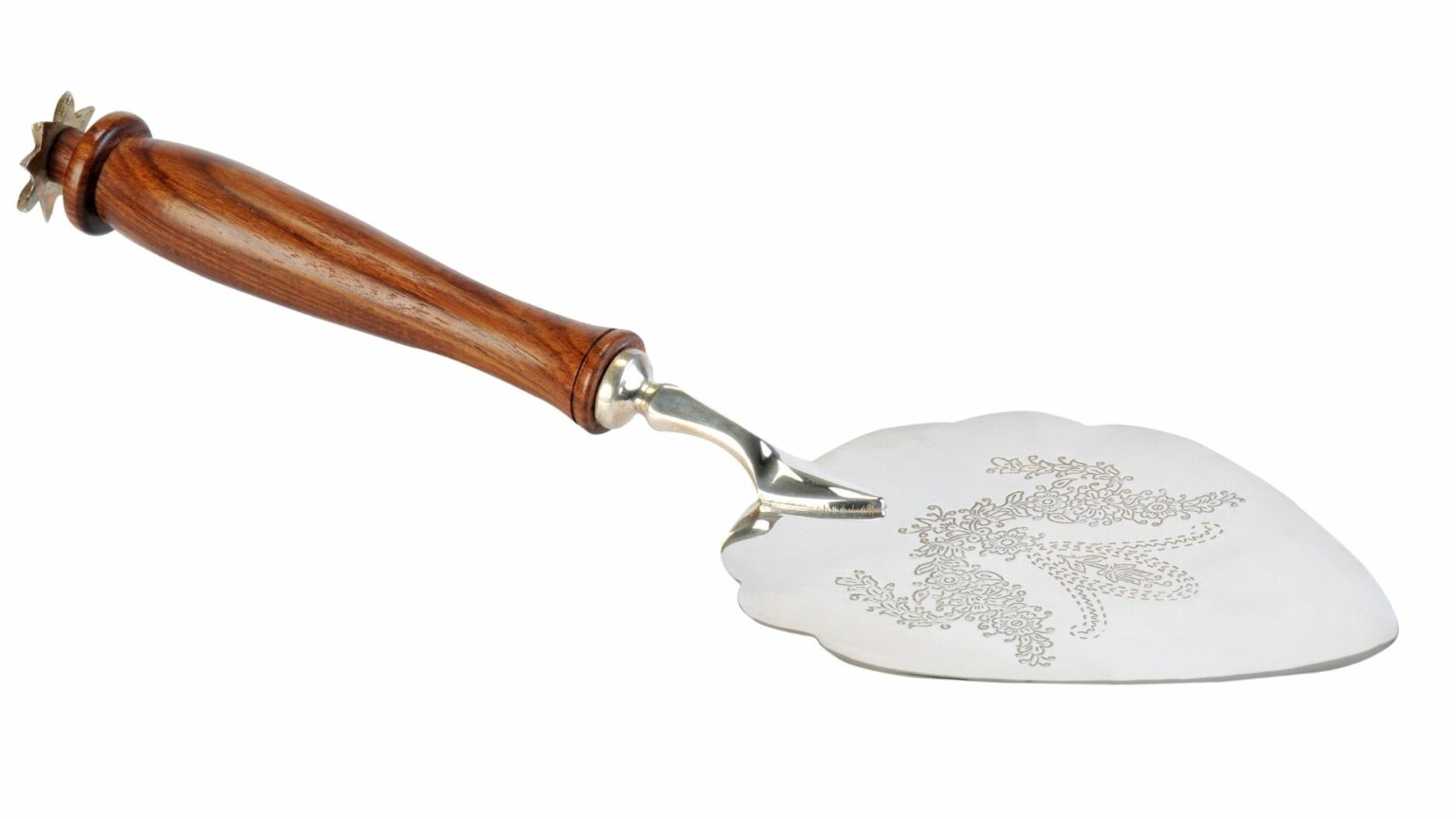
The notion that all fish is eaten with the hands is incorrect. For a long time, it was standard practice for diners to gently place their fork and knife on the plate when eating fish. This has been superseded in modern times by the informal method of eating fish: utensils are left on the table and the person eats from the serving plate with just a fork or spoon.
Although this is now the most common way of serving and eating fish, only in recent years has there been sufficient awareness for diners to become aware that this is not a standard practice. Fish knives exist as a distinct set of eating implements designed to extract delicate pieces of cooked fish from the bone or skin; they may also be used for carving individual portions onto serving plates.
However, these specialized implements have been around since at least 1742 when they were first mentioned in an English book about entertaining. By 1850, fish knives were present on every fine dining table and are still used today, although not as often. Historians claim that fish has been eaten with a variety of tools throughout human history, but it is not uncommon to use hands.
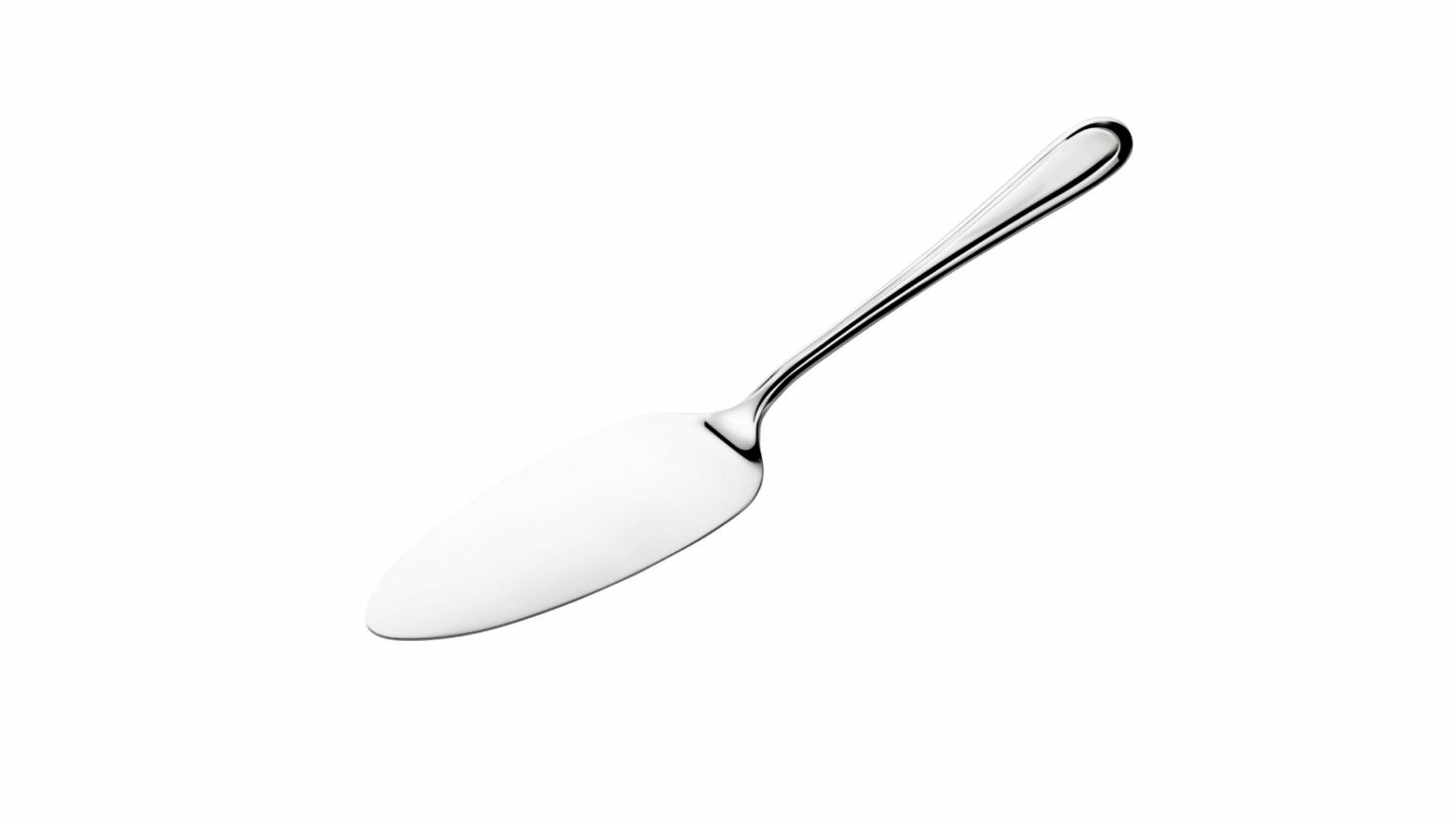
According to Etiquette, fish is served during a meal, with a special fork and knife. The fork is held in the left hand, and the knife in the right. The fish should be cut toward you on the dish, until it is removed; then put down upon another plate. Fish is served with a special fork and a knife, which is not used to cut, but to remove the fillets from the bones or to separate a small piece by the fibers.
Fish knives have curved blades and rounded tips to make it easier to separate the bones from the meat. The technique for using them is almost similar to that of butter forks. There is no need to cut fish bones with such a knife. These knives have tips of metal that are convened upwards, or sometimes concave downward for easier carving skin.
Any leftover fish bones are placed in a separate bowl along with any scraps. When shopping for your next set of fish knives, consider that the blade in relation to the handle is located at a slight angle, like a spoon or fork, the handle is always longer than the working part. This will ensure your products work well for years to come. Fish spatulas serves with large fish cooked as a whole, such as salmon and bream.
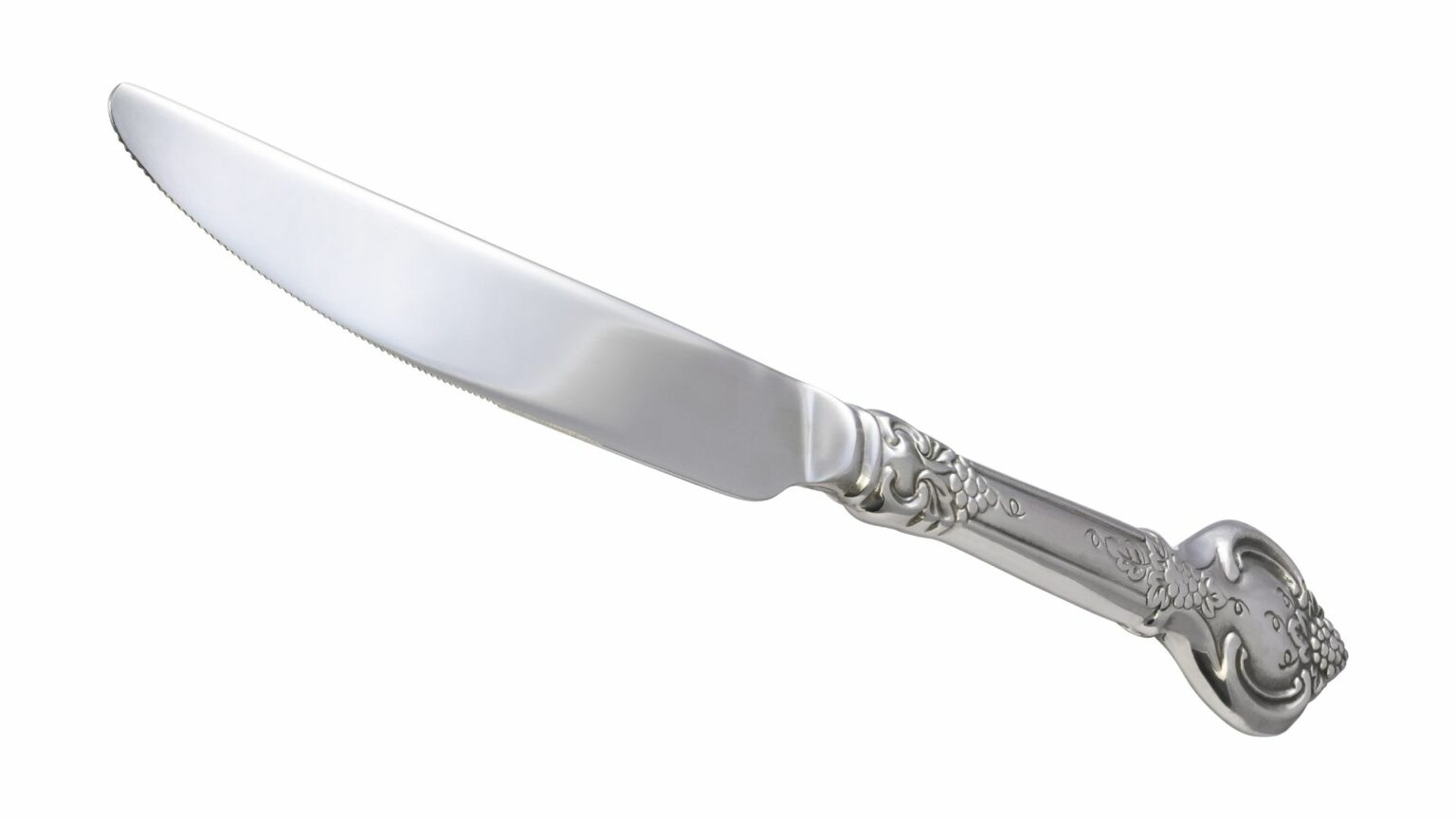
Fish spatulas are serving utensils designed to aid in the serving of large fish, such as salmon. These blades are made with stainless steel blades to cut slices of fish. Fish spatulas have a long handle for easy maneuvering. They are very popular in settings where the chefs or cooks do not want to touch the food directly with their hands. Fish spatulas are not so common that they can be found in every store, but they are widely sold on the Internet and available at Amazon.
Larger spatulas are necessary if the whole carcass is served to the communal table. Smaller spatulas are portioned, for guests when each is served a different portion with the fish carcass. First separate the head and tail with a spatula, then cut along the belly and back with a sharp cut and, picking up the skin at the tail part, twist it on the spatula, carefully removing it.
After eating the fillet on one side, turn it over and eat the other part. Fish serving knives are made of high quality stainless steel as well as silver. Serving knives made specially for serving fish can be found in all price ranges and it will depend on each individual’s preference and budget what type of knife you will buy.
Neutral or fish themes are used in decorations. This picture determines the use of fish knife set in more formal events and more informal events. Fish knives are sold separately. They are also often included in sets that contain fish forks and sometimes butter knives as well. Fish knives are rarer, but can be found in almost any cutlery set that has a place for six or eight pieces of silverware.
The fish fork has broader, shorter tines than those of a dinner fork and is used to hold pieces of small fish. Fish forks often come as part of a set including eating and serving utensils that are also used at formal dinner parties that include fish. Some create funky shaped handles or come with special features like engravings.

When enjoying fresh fish, it’s important to know the proper way and tools for cleaning and cutting it. A good chef needs the right knives to get the job done right, and anyone who enjoys preparing fish in their kitchen needs the right equipment as well.
Recommended Articles :
Copyright 2026 © Beyond the Embrace
Beyondtheembrace.com is a participant in the Amazon Services LLC Associates Program, an affiliate advertising program designed to provide a means for sites to earn advertising fees by advertising and linking to Amazon.com.




